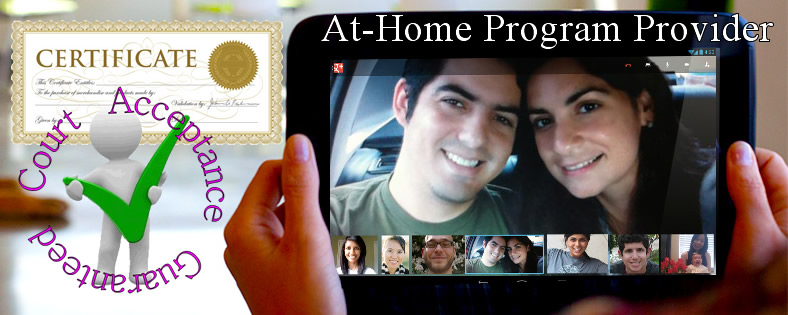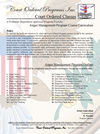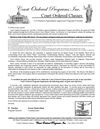What is divorce education and why is there a need? As the number of family-related court filings has risen over the years, families have increasingly relied on the courts to resolve family law issues and problems including child custody, visitation, child support, paternity, emergency protective orders, and restraining orders. In our society, divorce is a common event. The National Center for Health Statistics indicated that 43% of first marriages end in separation or divorce within 15 years. In an effort to help family members cope with divorce, judges are increasingly requiring parents to attend programs to make them more aware of the impact of divorce on children. These programs give families exposure to information and skills that may ultimately lead to a reduction in the number of disputes that require a court�s intervention. Most importantly, by requiring divorcing parents to attend these programs, the courts are making a statement to the community that �children matter�! Divorce education programs are being treated as a �first line of defense�. It is estimated that up to a million children a year across the country will experience the impact of divorce.
Divorce, most often, creates or complicates problems for parents and children. Parents are faced with the difficulties of handling their own physical, emotional, social and financial needs while, at the same time, helping their children adjust to the changes in their life. Some parents fail to recognize just how significant and upsetting these changes may be for children. Yet, it is possible to focus on positive adjustment to divorce. Positive adjustment involves being relatively free of signs and symptoms of physical or mental illness; being able to function adequately in the daily role responsibilities of home, family, work, and leisure; and having developed an independent identity that is not tied to martial status or the ex-spouse.
Divorce education programs are being developed around the country to help parents assist their children through communication, discipline and proper boundaries. There are a 500 + such programs operating in the United States, some of these programs offer on-line courses, which meet the court approved national standard. These programs vary in course length, cost, skills-based and information-based, but, all of which focus on reducing a child�s anxiety, depression, and behavioral problems; recognizing parental conflict and how conflict impacts a child�s development; communicating effectively; responding appropriately to children�s divorce related concerns; and changing long-term roles from ex-spouses to co-parenting relationships. Divorce education programs according to research are more effective when a children�s component has been included in the curriculum. It is essential to address issues for both the children and the parents.
COURT REVIEWS
More than half of United States judicial circuits have some form of Divorce Education that is mandated by the local circuit courts. During the Divorce progress report hearings, if any, there is sincere interchange between the Court and respondent. Good progress is always positively reinforced directly by the Court. Poor performance is negatively reinforced in various ways, ranging from verbal admonishment to incarceration. Progress report materials for the Court�s consideration include written reports from the treatment providers and written reports from the probation officer.
Once again, Court Ordered Classes, upon participant request can provide the Probation Officer, along with the Court, Proof of Enrollment and Progress Reports for all of our enrolled parenting, High-Conflict Parenting or high-conflict divorce class participants.









